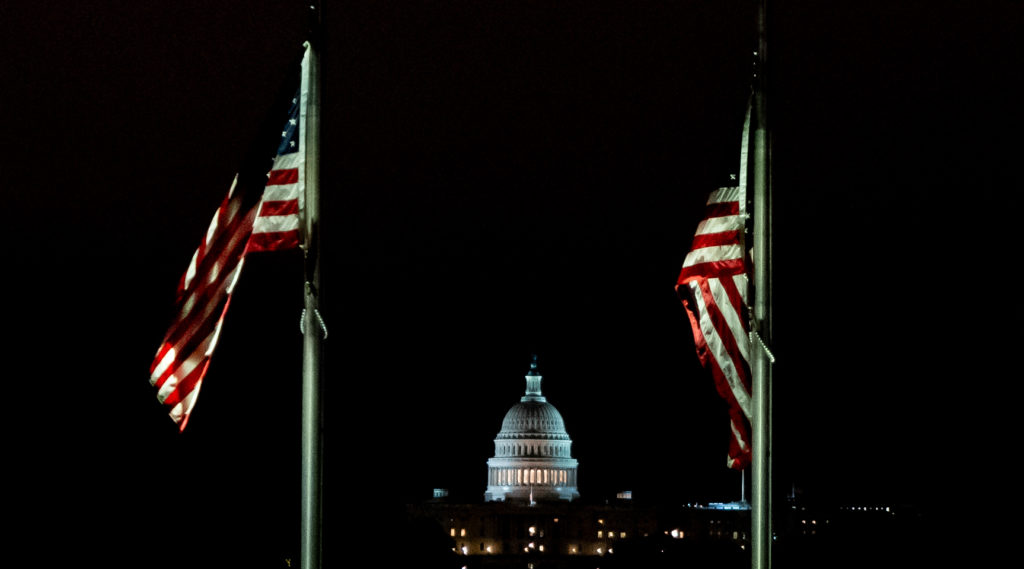Diane’s farewell message
After 52 years at WAMU, Diane Rehm says goodbye.

Flags at half-mast in memory of COVID deaths at the Washington Monument with a view of the Capitol on May 24, 2020.
Six years ago, Danielle Allen came on the Diane Rehm Show to discuss her book, “Our Declaration.” It’s about teaching the Declaration of Independence to adult night school students and why she thinks the the text says as much about equality as it does about independence.
Diane has often rebroadcast that interview on the 4th of July, but this year, there seemed so much more to say.
Danielle Allen joins Diane now to talk about America’s response to the pandemic and how the U.S. can strengthen its democracy, which she calls fragile, but not broken.
Allen is director of the Edmond J. Safra Center for Ethics at Harvard University where she spearheads Harvard’s COVID-19 response initiative, which recently published “The Roadmap to Pandemic Resilience,” a comprehensive plan for reopening the U.S. economy.
After 52 years at WAMU, Diane Rehm says goodbye.
Diane takes the mic one last time at WAMU. She talks to Susan Page of USA Today about Trump’s first hundred days – and what they say about the next hundred.
Maryland Congressman Jamie Raskin was first elected to the House in 2016, just as Donald Trump ascended to the presidency for the first time. Since then, few Democrats have worked as…
Can the courts act as a check on the Trump administration’s power? CNN chief Supreme Court analyst Joan Biskupic on how the clash over deportations is testing the judiciary.